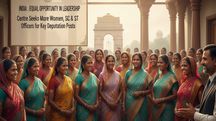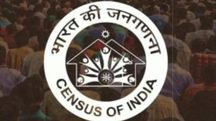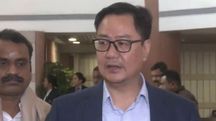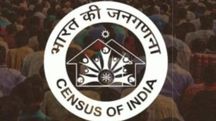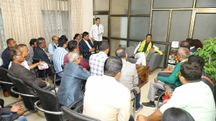Women's Reservation Bill awaits Rajya Sabha verdict after Lok Sabha approval
The Constitution (128th Amendment) Bill, which had been pending for 27 years due to a lack of consensus among parties, received overwhelming support in the Lok Sabha.
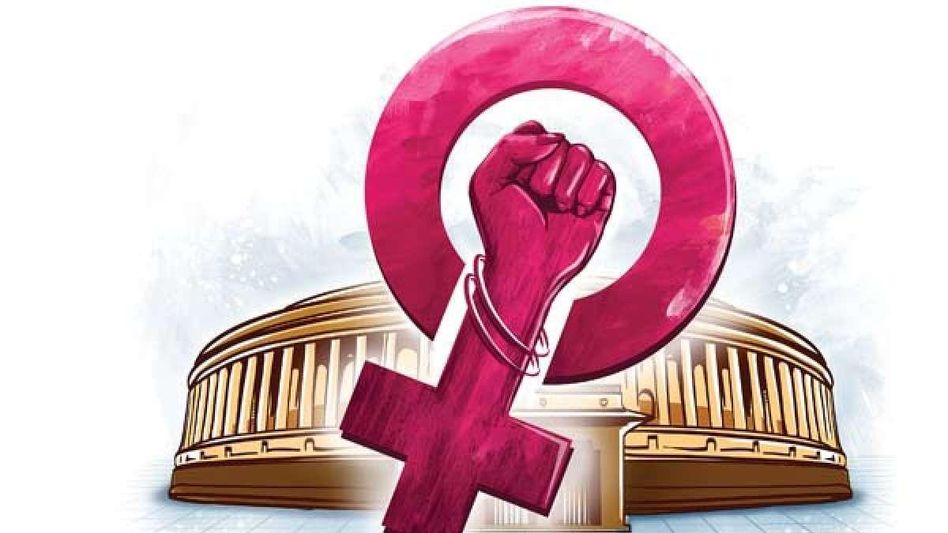 Women's Reservation Bill awaits Rajya Sabha verdict after Lok Sabha approval
Women's Reservation Bill awaits Rajya Sabha verdict after Lok Sabha approvalIn a historic move, the Lok Sabha, the Lower House of the Indian Parliament, has cleared a bill that provides 33 percent reservation for women in both the Lok Sabha and state assemblies. The bill, known as the "Nari Shakti Vandan Adhiniyam," is now set for consideration in the Rajya Sabha, the Upper House of Parliament.
The Constitution (128th Amendment) Bill, which had been pending for 27 years due to a lack of consensus among parties, received overwhelming support in the Lok Sabha. A total of 454 members voted in favor, with only two members opposing it, following a spirited eight-hour debate involving 60 participants. Notably, this bill was the first to be passed in the newly constructed Parliament building.
The bill's passage in the Lok Sabha comes amidst demands from the Opposition to extend similar benefits to women from Other Backward Classes (OBCs) and to implement the quota before the general election in 2024. However, the government has indicated that the reservation may be implemented around 2029, once the census and delimitation exercise is completed.
Here is a summary of key events during the Lok Sabha debate on the women's reservation bill:
• Former Congress president Sonia Gandhi advocated for including OBC women in the proposed law, emphasizing that any delay would be a "gross injustice" to women.
• Several Opposition leaders dismissed the bill as a reaction to the formation of the opposition group INDIA, labeling it a "jumla" (gimmick).
• Trinamool Congress (TMC) MP Mahua Moitra criticized the bill, highlighting its dependence on indeterminate dates and suggesting that the implementation might not occur until 2029.
• Nationalist Congress Party (NCP) member Supriya Sule referred to the legislation as a "post-dated cheque" and called for a clear implementation timeline.
• Home Minister Amit Shah intervened in the debate, reassuring that a census and delimitation exercise would be conducted after the elections, paving the way for women's reservation possibly after 2029.
• AIMIM chief Asaduddin Owaisi opposed the bill, arguing that it would primarily benefit "savarna women" and exclude OBC and Muslim women with limited representation in Parliament. He and Imtiaz Jaleel voted against the bill.
Following the bill's passage in the Lok Sabha, Prime Minister Narendra Modi expressed his delight at the phenomenal support it received, emphasizing its historic significance in promoting women's empowerment and greater political participation.
The bill was passed as per the provisions of Article 368 (2) of the Constitution relating to the passage of constitutional amendment bills, requiring the support of a majority of the total membership of the House and a majority of not less than two-thirds of the members present and voting.
As the bill heads to the Rajya Sabha for consideration, 14 women MPs and ministers from the BJP are expected to speak on the matter, with BJP president JP Nadda leading the way. Finance Minister Nirmala Sitharaman will also be among the prominent women MPs from the BJP participating in the debate.
Currently, there are 82 women members in the Lok Sabha out of a total strength of 543.
The women's quota bill, initially introduced in 2008 during Prime Minister Manmohan Singh's coalition government, was passed by the Rajya Sabha in 2010 but failed to gain approval in the Lok Sabha due to political differences. It lapsed with the dissolution of the 15th Lok Sabha.
Copyright©2025 Living Media India Limited. For reprint rights: Syndications Today

